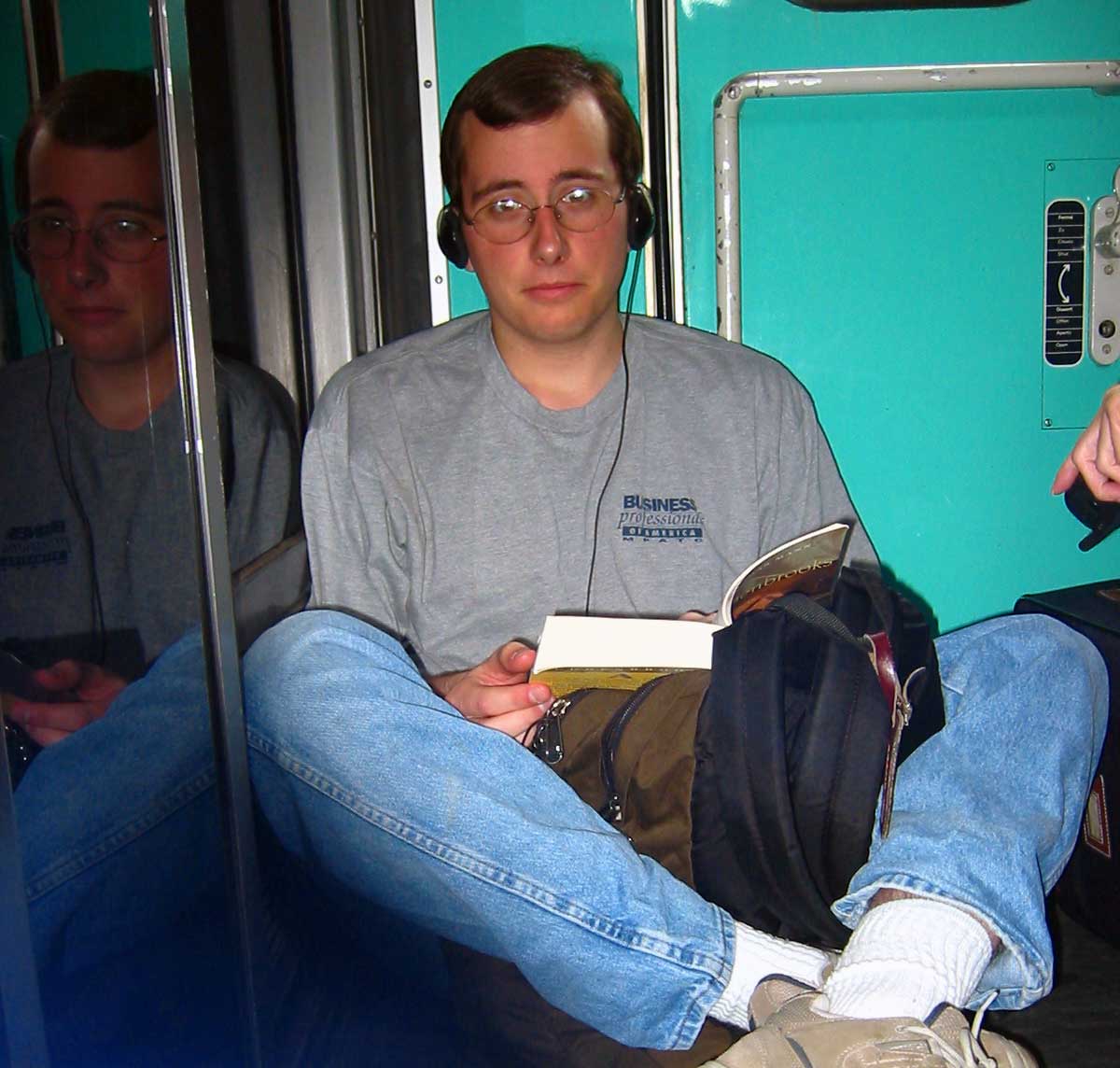I was always aware of Paul Theroux growing up. I was raised in a family that traveled (and travels) by train and had read Theroux’s travel books. There was also a VHS of The Mosquito Coast, with a crazed Harrison Ford staring back at you, and a tagline proclaiming that “He planned a paradise. He created a Hell.”
I think the first Theroux I read on my own was the delightful Riding the Iron Rooster, about his travels (mostly by train) through the People’s Republic of China in the mid-1980s. The thing about Theroux is that he’s interested in the world around him and in seeking out new experiences. When he travels to a new place, he talks to people and asks penetrating questions. His books weren’t banned by Singapore and apartheid South Africa for nothing.
I read Riding the Iron Rooster while on study abroad in Germany in 2003. My father probably gave it to me. I have an email listing five books I’d read in the first month:
- High-Rise
- War and Peace
- Riding the Iron Rooster
- Finding Your Religion
- Catch-22
I know High-Rise was Dad’s suggestion and Finding Your Religion Mom’s. Dad later mailed out two books by Thomas Mann: Buddenbrooks (John Wood’s translation and a personal favorite), and Doctor Faustus (still haven’t read it).
It’s an eclectic group of books. Thing is, when you’re spending hours on trains running around Europe in the era before smartphones and WiFi, and you’re traveling by yourself, you can read, you can write, and you can look out the window. Theroux is often striking up interesting and insightful conversations, but that’s why he’s a published writer and I’m not.

I’m not having a Luddite moment of any kind, well no more so than usual, but as I’ve been traveling this year I’ve tried to set the devices aside and read more. To make it serendipitous, I’ve bought the books along the way. Thus I picked up The Lost City of Z in the Newark airport on my way out to Denver in April, and Into Thin Air at the Tattered Cover location in Union Station.
In late May my wife and I were in Greenport, New York, as part of a trip that took us across Long Island Sound to New London and Boston, and then up to Brunswick. My feelings on Greenport are mixed (they have a siren), but Burton’s Bookstore on Front Street has an excellent selection. I picked up two books there: Ben Macintyre’s The Siege, and Paul Theroux’s The Pillars of Hercules.
I didn’t start it until we got back, brought it with me during trips to Swarthmore and Michigan, and finally finished it a few days ago. Theroux’s goal was to re-create the Grand Tour in the 1990s, circling the Mediterranean. I lost track of his timetable but I think he was at it–with one large break–for the better part of the year. It’s a fun and engrossing read. One thing that stands out in my memory is Theroux traveling through former Yugoslavia at a time when that was not at all safe. One night he’s shacked up in a hotel full of refugees and UN aid workers. There’s also his time in the Middle East, then as now wracked by war and political uncertainty.
As always, he meets various people. Some interesting, some not. Some polite, some rude. On a ferry from Haifa to Piraeus he meets a man who deals with his mental health by refusing to make a permanent home and alternating between Brussels and Tel Aviv. He’s taken this route so many times that he’s got everything down to a well-ordered routine, even where to buy fruit in Limassol. This could be bizarre, but the thing is Theroux likes people and wants to know more about them.
He’s also traveling during the last gasp of the pre-internet age. The Pillars of Hercules was published in 1995. There is no mention of computers or email. Few people have cellular phones. Theroux gets his news from newspapers or his shortwave radio, or from talking to people. Train and ferry tickets are bought in cash. Sometimes he has a hotel in mind when he arrives in a new city, but he almost never has a booking ahead of time. He’s often making decisions based on incomplete information. The digital backend may be growing in the mid-1990s, but it’s still an analog age. Traveling into the unknown as he does requires a courage (and facility with languages) that I do not possess.